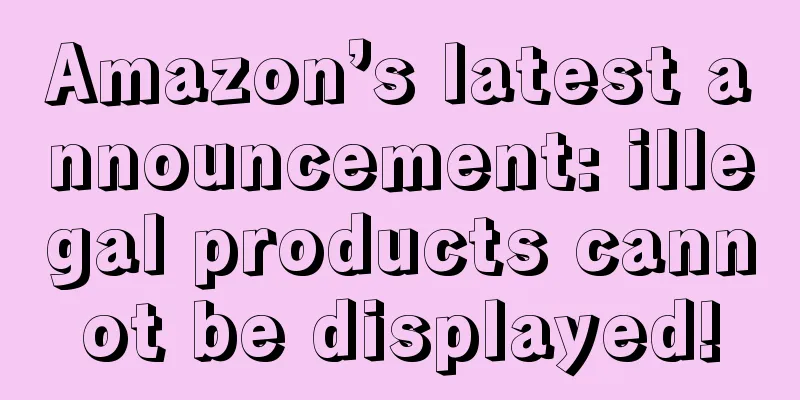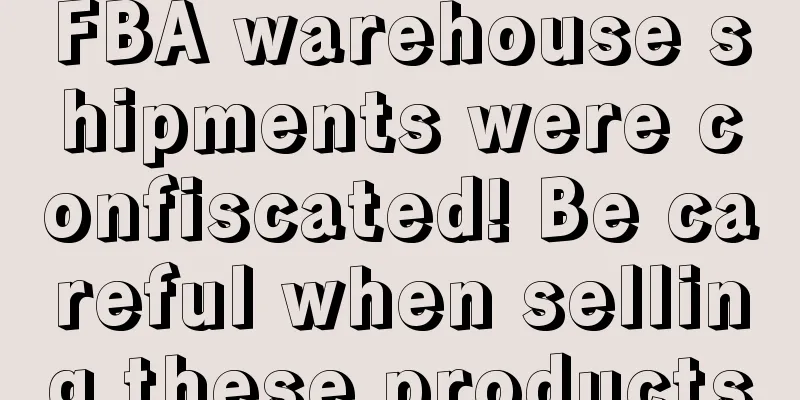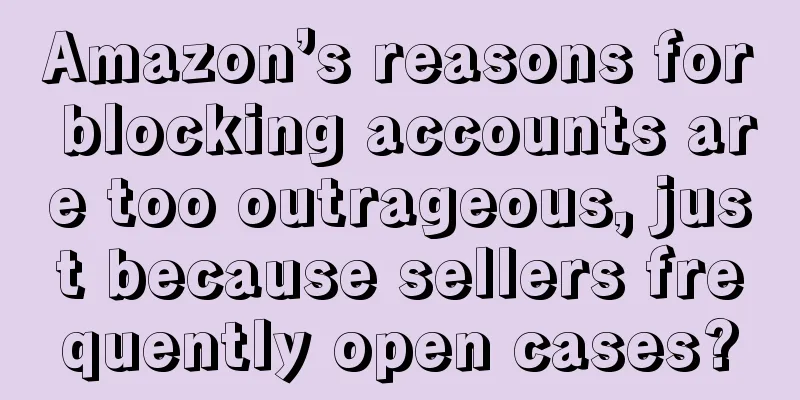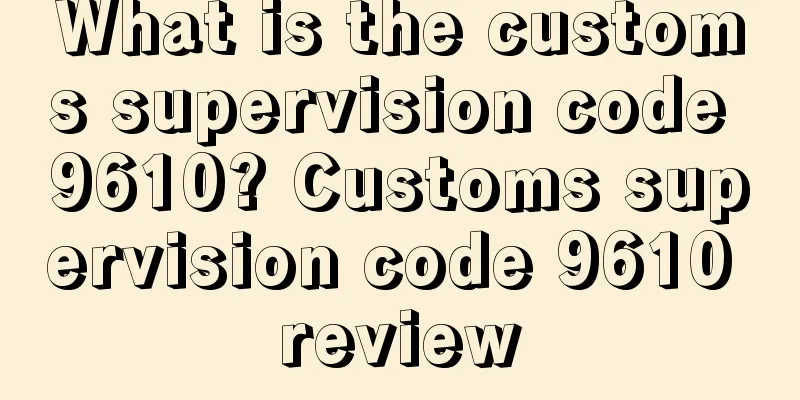Amazon’s latest announcement: illegal products cannot be displayed!

|
Amazon recently released an announcement in the background, emphasizing several optimization requirements for product search terms and listing a list of prohibited keywords, allowing sellers to self-check their products according to the list. Let's take a look at the official optimization suggestions. First of all, ST currently has only one field, and the length of the content that can be entered is limited to 250 bytes. New products that exceed the length will not be saved , and sellers need to manually adjust the ST length of old products. (Note: If the ST of old products exceeds the length, it will not be automatically cut off, but the entire ASIN will not be captured and cannot appear in the keyword search results, so old products must be manually changed) It can include synonyms, spelling variations, abbreviations and aliases, and can also be all lowercase. Many sellers have their own way of separating each keyword. Amazon also provides standards, and recommends using spaces instead of punctuation (but using punctuation will not have adverse consequences). At the same time, Amazon also announced some situations that are not allowed to appear, such as: 1. There is no need to use transitional conjunctions, such as: "a", "an", "and", "by", "for", "of", "the" and "with", etc. 2. Avoid using completely repeated words. 2. It is prohibited to fill in the ASIN code in the ST field. 3. It is prohibited to have brand names appear in ST (including your own). 4. It is prohibited to use adjectives with a temporary nature, such as "new", "on sale now", "brand new", "limited time", etc. 5. Subjective adjectives such as “best”, “cheapest”, “least”, “most”, “amazing”, and “effective” are prohibited. 6. Offensive words are prohibited. Except for the first two points, it is recommended not to do them, but there is no problem if you do them. The last four points are very serious problems. If the regulations are violated, there may be negative impacts on the products and even the store, including traffic restrictions and non-display . Among the following points, the problems that sellers are more likely to encounter are brand names and subjective adjectives. Brand names are easy to change and judge, but subjective adjectives are more vague. Amazon only provides some obvious examples. The official has not given detailed information on which other adjectives are considered subjective. In addition, when we fill in ST, we usually use adjectives to form long-tail and precise phrases, etc. , so it is inevitable that some of them will be judged as subjective adjectives, resulting in product flow restrictions. Amazon also added an intriguing explanation on whether the keywords are in violation of regulations. Explanation of the rights to deal with illegal keywords Regarding the criteria for determining whether keywords are subjective, Amazon not only did not clearly define the boundaries, but also added a clarification. To translate the official language into plain language, it means "Although you have filled in the keywords, we have the right not to use them, that is, we will not give you the corresponding display." This statement is actually to avoid regulatory issues, because the silent unilateral flow restriction will definitely harm the interests of sellers. European and American antitrust agencies have put pressure on Amazon on this issue. This statement here will help Amazon explain to regulatory agencies in the future. However, this also shows that Amazon has absolute say in determining whether a keyword is illegal. Moreover, there will be no prompts for this kind of traffic restriction, and it is difficult for sellers to find illegal words by self-checking . Here, we strongly recommend that you only use adjectives that describe objective parameters, or simply use noun phrases. If the product has a cliff-like drop in traffic or traffic restrictions, you should also consider whether there is a keyword violation. In the past two days, many people have reported that there are problems with the front-end search and some products cannot be seen. It is very likely that after the new notice was issued, some products with illegal keywords were restricted from displaying in the search results . If the display cannot be displayed because of a bug, it will definitely return to normal within a few days. If it does not recover for a long time, it is recommended that you check your keywords and replace the words that may violate the rules as soon as possible ! |
<<: Amazon launches new feature! Could it be a new traffic entry point?
>>: FBA delivery policy tightened again! Storage limit will be limited in July
Recommend
The battle for workers intensifies! Walmart plans to hire 150,000 employees in the United States!
According to Reuters, Walmart recently said that i...
Walmart, Target, Walgreens and Best Buy Ranked Among the Top 50 Companies in the United States!
Walmart, Target, Walgreens and Best Buy are among...
What is Wooplr? Wooplr Review
Wooplr is a consumer content-driven fashion e-comm...
The proportion of Amazon business has dropped sharply by 37.28%, and Zebao is gradually emerging from the shadow of the account ban!
It is learned that recently, Xinghui Shares, the p...
What is Ant Store Manager (MAEE)? Ant Store Manager (MAEE) Review
MAEE is a SaaS system that provides one-stop servi...
The Japanese site has also come to Python! Trying to dominate multiple categories
Do you still remember that before Prime Day last ...
What is Sacelady? Sacelady Review
Sacelady was founded in 2015 and is a domestic cro...
What is Discoverly? Discoverly Review
Discoverly has found a way to collect cross-social...
There is a choking risk! 2,600 domestic toys are urgently recalled!
<span data-shimo-docs="[[20,"获悉,据外媒报道,近日美国...
What is AmzChart? AmzChart Review
AmzChart is a powerful free Amazon product selecti...
How to safely change the payment account to avoid triggering Amazon's second review? Here is a guide
The internal full name of the second review is Ba...
What is AmzBoost.com? AmzBoost.com Review
AmzBoost.com is a website in the United States tha...
15 tools for finding influencers that sellers are using, all free!
Influencer marketing is one of the most common ma...
A review of the Black Friday results in the US! Total online spending was lower than expected!
According to Adobe Analytics, total online spendin...









